The important thing to remember about The Good Place is that it shouldn’t have existed in the first place. There’s no reason there should have been a network sitcom that dealt — really, truly dealt — with morality and ethics and the afterlife, that name-checked philosophers like they were rock stars, that combined fictional restaurants like Stupid Nick’s Wing Dump with a series-long meditation on what it means to be a good person in an impossible time. Based on everything we know about the world as it is presently constructed, that’s not something that should have been possible. But, as the story goes, NBC went to creator Mike Schur after Parks and Recreation ended and said “You can do whatever you want” and he took the mightiest cut he could muster. And, against odds so long they could have wrapped around the globe three or four times, it worked. It worked really well. That’s not something you should forget.
It even worked all the way up through the series finale, too, which also feels impossible. The show spent the better part of four seasons asking some of the biggest questions there are to ask, ones that have been puzzling our greatest thinkers since our brains evolved beyond “find food, eat food, repeat.”All the finale had to do was, um, provide a satisfying resolution for multiple characters with multiple motivations and explain both the afterlife and the meaning of life, in general. No biggie.
The interesting thing is that the show pulled it off by zagging instead of zigging, by giving us the old okie-doke, by going small instead of big. It was never really about those big questions. It was about the characters attempting to grapple with them, and the little things that made up those big things. So yes, Jason Mendoza achieved inner peace after finally playing the perfect game of Madden with his beloved Bortles-led Jaguars, and he went out with a dance party he DJed. Tahani made peace with her parents and got to use her meticulous planning and organizational skills to transition into the role of an architect. Chidi finally found the inner calm that taunted him, to the point that he started reading Dan Brown and making strong decisions about things. They all got a resolution that was simple and in-character and came from within, kind of like a Wizard of Oz ending. That’s not to say it wasn’t sad in places. This shot of the last moments Chidi spent with Eleanor will stick with me for a while.

And there is time to talk about all of that, up to and including the thing where Jason backed into becoming a pseudo-monk by living alone in the woods for a thousand Bearimies while he waited for Janet, bringing his arc full circle in an almost unreasonably perfect way. But the story here, right now, is Eleanor and Michael, the show’s two most complex characters, forever intertwined, both finding peace in a surprising, satisfying way.
Eleanor was the main character from the start and had the longest way to go. She was, by her own admission, an Arizona trashbag, self-involved and selfish and impulsive, not concerned about anyone else or their feelings. It hurt to see Chidi go before she did because it meant she had to say goodbye to her lover and her teacher and her guide on the path to morality, but he had to go for her to get where she needed to be. She had to do it herself. Her path involved helping people who were the hardest to help, who were stuck either by choice or by the rules, who needed the exact qualities she brought to the table. For Mindy, it was a push from a kindred spirit; for Michael, a rule-breaker’s creativity. Once Eleanor did that, did another selfless thing, by herself, because it was the right thing to do, she was ready. She could walk through the door. And when she did, we got our first glimpse of what happened as people passed through: she turned into a collection of little glowing lights that floated away, like giant fireflies. It was a cool visual in an episode filled with pretty cool visuals. Shoutout to Derek’s floating head.
This brings us to Michael, who, with Eleanor’s help and the judge’s okay, became human and went down to Earth to become a real boy, like a very handsome, silver Pinocchio. He experienced things, felt things, burned his hand. And, if you looked closely, in that last scene, you noticed one of the little floating Eleanor lights touching this guy on the shoulder as he was throwing out mail that was sent to him by mistake, mail that he proceeded to take to Michael.
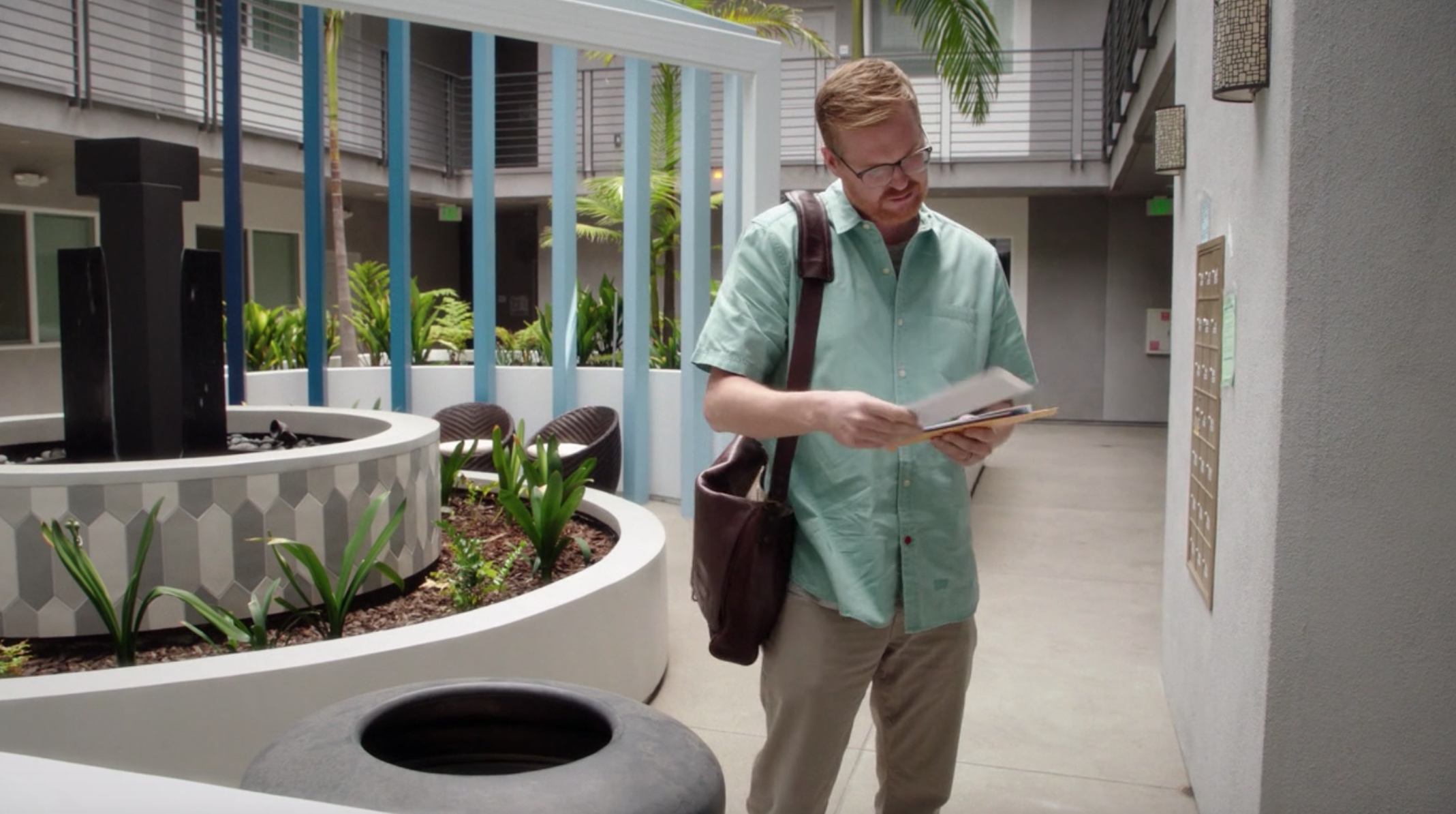
Let’s take a trip back to season one, just for a second. At a party in the seventh episode, Michael gave a speech about things he’d want to do if he were a human. Highlights included: pulling a hamstring, learning the difference between “toward” and “towards,” and doing “that thing where you walk down the hallway, and someone else is walking the other way, and then you both lean to one side and then the other, and then you both chuckle over your shared foible.” He also said this, though…
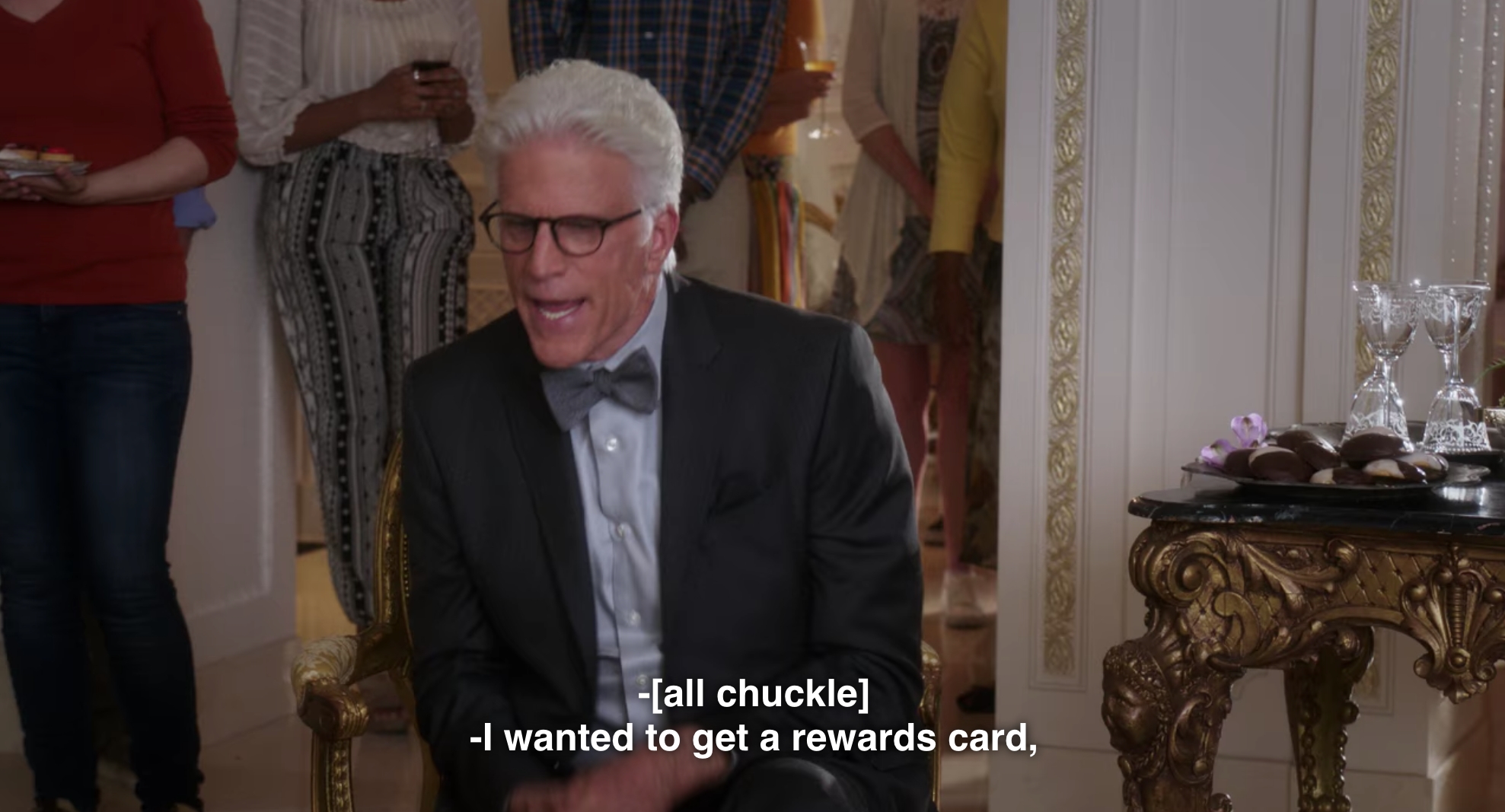
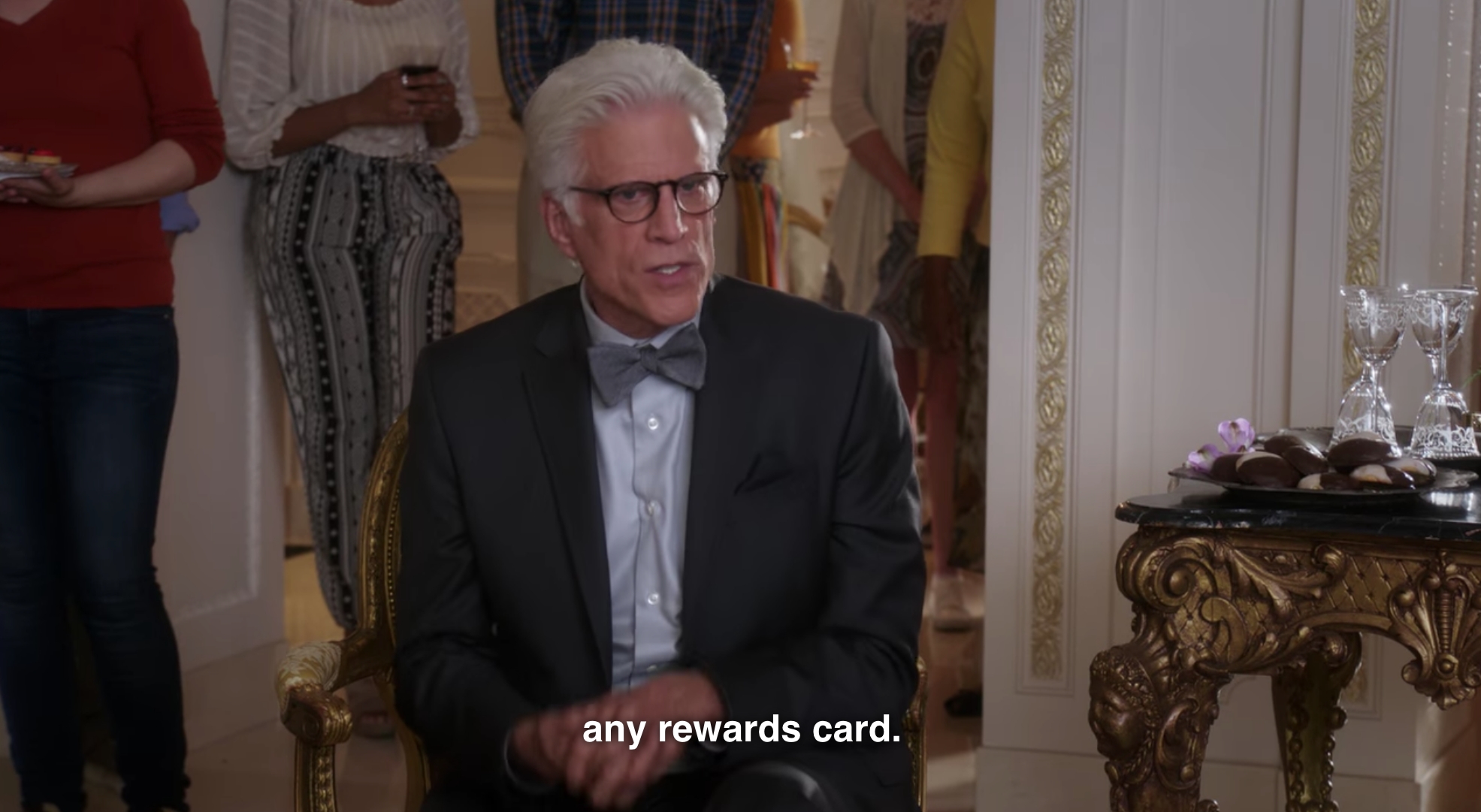
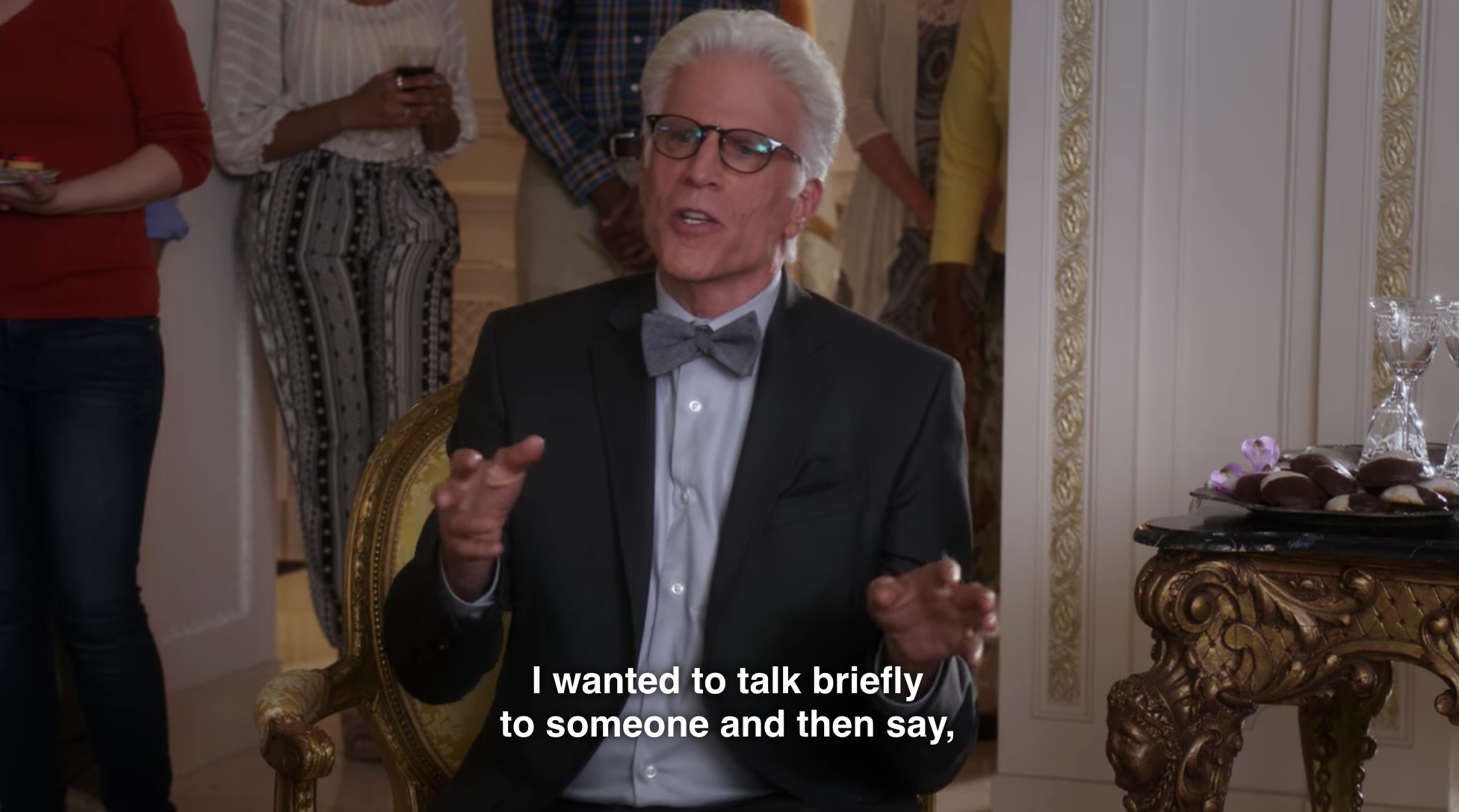
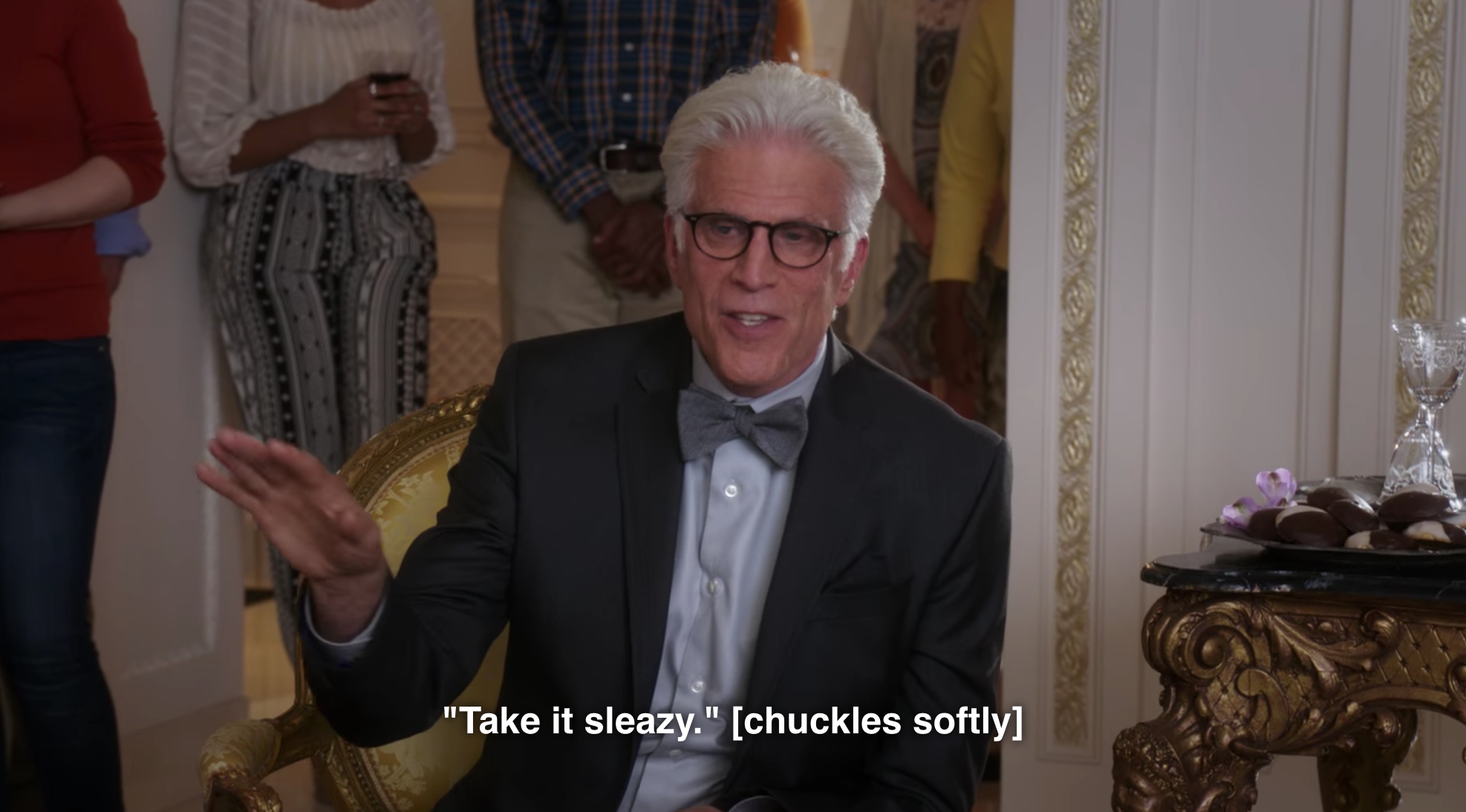
… which is notable because, when the guy who was touched by the spirit of Eleanor brought him the letter, this is what was inside.
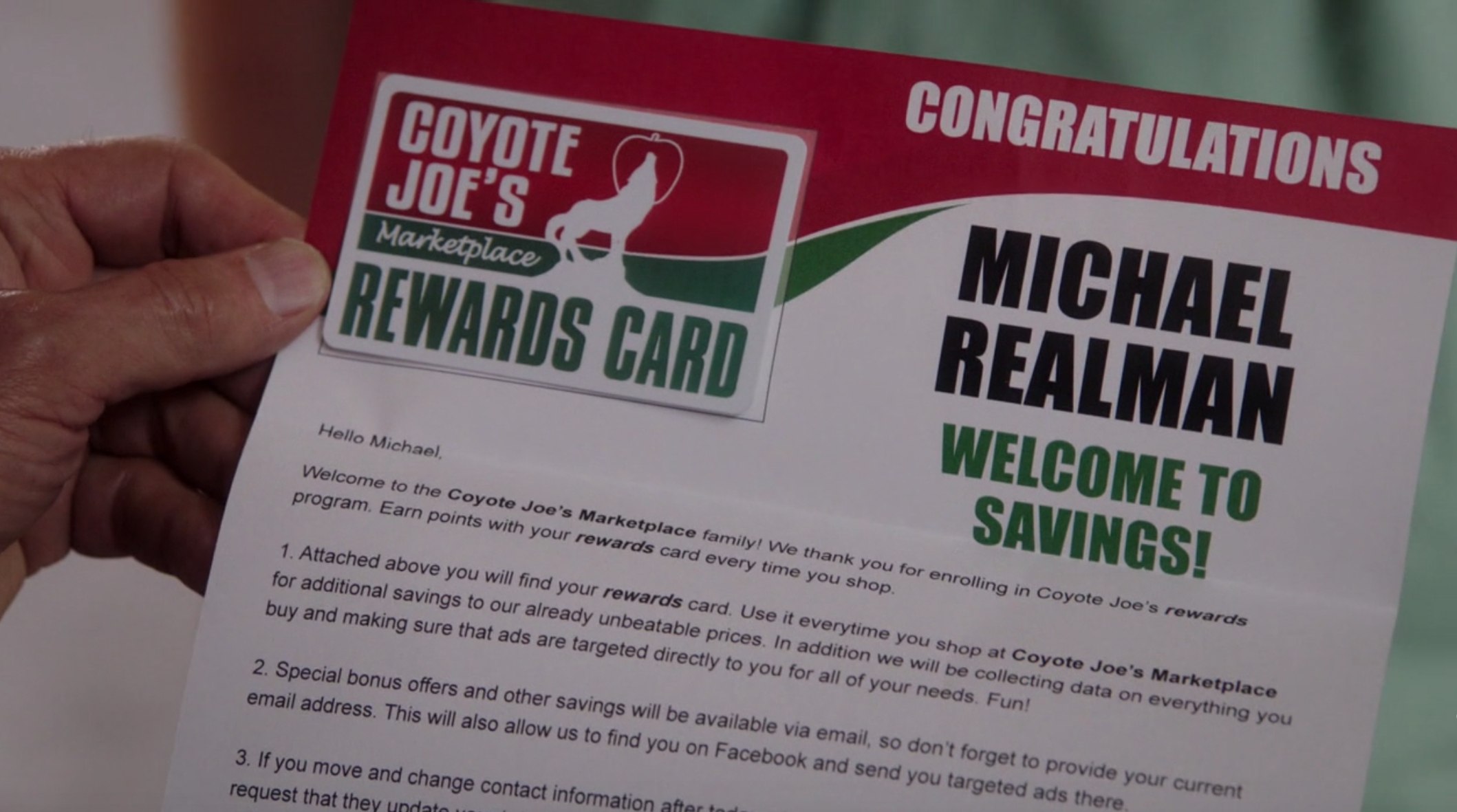
Two notes here:
- I don’t know what Coyote Joe’s is but I love it and want to do all of my shopping there
- I love that, even while making a touching point about friendship and happiness and the meaning of life, the show also took the opportunity to toss in a very stupid joke like giving the human Michael the name “Michael Realman”
It’s not quite Zach Pizzazz, but it’s still so beautiful I could have cried if I hadn’t been crying already. And then, to put the little bow on it all, well, you know…
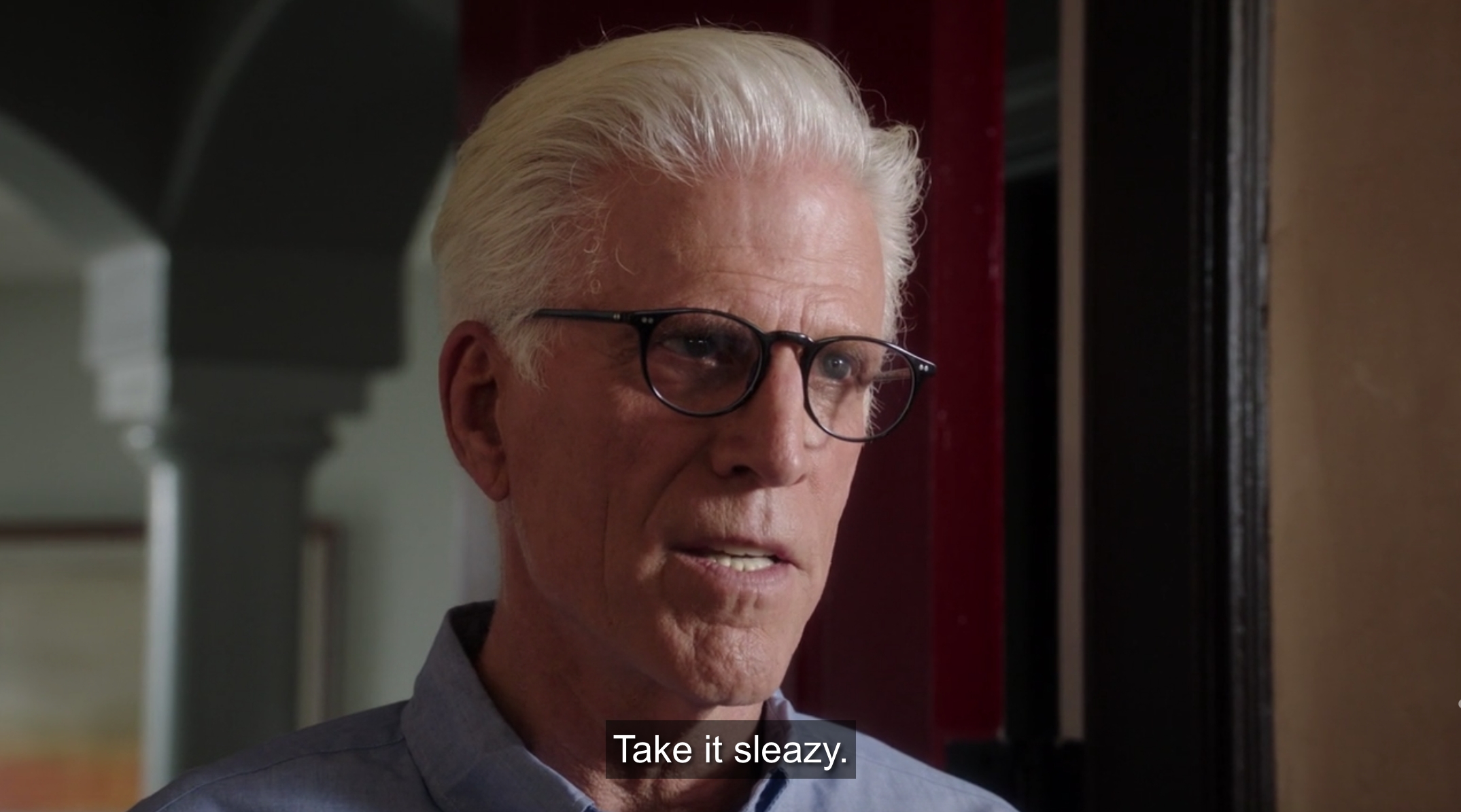
It was such a cool and smart and sweet way to wrap things up. It gave Michael a touching resolution and flipped the power balance between him and Eleanor, with her providing a little push from beyond to give her friend a moment of joy. I don’t know if that’s what the afterlife is like. There’s not really a way to know without going there, wherever or whatever “there” is, but if all it ends up being is floating around and touching people’s lives in tiny ways to bring them moments of happiness or peace, I mean, that’s not bad. That’s not bad at all. It’s not always the big stuff in life (or the afterlife, I suppose). Sometimes it’s the little things, the small acts of kindness, that really make a difference. That’s what The Good Place was always trying to say. It’s pretty cool the show got the chance to say it.







